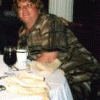Search the Community
Showing results for '"weight gain"'.
Found 15,902 results
-
Well, I have watched this blog since it was put in and I cannot believe the amount of people I know who has had their surgery in 2005 and no one is ever in here. We need to be in here for our future. I constantly read how the bad habits have returned and this is the reason why this was installed. We don't have support group meetings on a daily basis to help us through our tough times. Has everyone succeeded and met their goal? Have we failed and are trying to get back on board with our lives? Is everyone so confident that they don't need to talk anymore about our new lifestyle and we have concoured everything in our past with our weight issues? That would be great..................... We still need to be here for the people that are just starting out or the ones that are close to goal and are still having issues or any type of questions possible that we are so experienced with. What do you think? Let's be helpful................ You will notice no fills down below and that is because I finally made up my mind that I wanted to live a longer life than what was expected of me down the road. Maybe I could have done it without the band but I didn't want to take that chance anymore with weight gain and weight loss since that in itself is just as dangerous on your heart as is being obese. I know that my band, my friend, is there to give me support and if I begin to have bad habits I can run to my doctor for help. Surgery Date : November 10, 2005 Starting Weight : 251 Ending Weight : 142 Maintaining my loss since July 25th, 2006 with no fills Height/5'7" Clothing Size/4 - 6 but mostly 6 due to my womenly hips. Moral support is here for anyone who needs it. Josephine
-


Help trying to adjust.
kbinaz replied to Michelle34's topic in PRE-Operation Weight Loss Surgery Q&A
Hi- I just want to let you know that this will get easier! I remember at the very beginning thinking it was taking too much thought and how was I going to be able to have a band and a life! But it works out. I'm not sure why you have only eaten mashed potatoes and eggs. Is it because you are afraid to try other foods? My doctor had me on soft proteins four days after surgery and that meant I could eat eggs, chicken,turkey,fish, refried beans, cottage cheese...lots of stuff. As long as you follow the post-op instructions from your doctor you aren't going to hurt anything and you should be eating more than it sounds like you are eating. Instead of mashed potatoes, though, you should be eating protein. Your body is trying to heal and protein is what helps it to do that. Don't be afraid. Take it slowly and follow the rules for eating that I'm sure your doctor told you about (eat slow, chew well, small bites etc.) As for the weight gain, yes it is quite normal and don't stress out about it. The month or two after surgery is not for weight loss, it is for healing. You have fluid and swelling from the surgery and weird things are happening to your body. Don't worry about it. Do what your doctor told you to do and you are going to be fine. -
I'm gaining weight after 3 fills. I've read the following. Has anyone been thought this terrible time? Thanks, Carol Please read below... Lap Band and weight GAIN... Is there such a thing as having the band tightened too much? Yes, the band can be over-adjusted. When the band is too tight, patients cannot eat solid foods without regurgitating the food or feeling very uncomfortable for many hours. When the band is too tight, patients tend to gain weight because they are resorting to the liquid and/or softer foods that travel through the band easily. These foods tend to be higher in fat and higher in sugar. When patients start this dysfunctional eating pattern, they are taking in more calories than if the band was looser. A band that is too tight will also cause heartburn and coughing in some patients. If after surgery, and despite following all the rules, I am at a plateau of weight loss, what should I do? Plateaus are a normal part of the weight loss process. In the first year or two after surgery, weight loss plateau usually means that you need to come in and have a little bit of Fluid put in the band to increase restriction. Occasionally, plateaus are caused by the Band being too tight. If the Band is too tight, weight loss will resume after a little fluid is taken out of the Band. If the above causes are ruled out, we will have you keep a food and exercise diary. The diary will include the times and quantities of foods eaten, drinks taken, Protein grams consumed, and an exercise log. We may have you consult with the dietician as well. What happens if 10 years from now I start to gain weight? What do I do? We see you annually in the office for a check-up, however if you are gaining weight, it is time to come in so that we can assess the problem. It could mean that you need a little adjustment in your band volume to provide a little more restriction. There may be a problem related to the types of food you are eating or there may have been a life crisis and emotional eating or depression may be taking hold.
-


Nymph's Valentine's Day Challenge Week 5 :2/7/08
shortgal replied to shortgal's topic in LAP-BAND Surgery Forums
I am so excited to be losing weight consistently. Unlike many overweight people, I was never able to succesfully lose a lot of weight. The most I ever lost was 30 pounds and it took me ten months and then I regained half of it before I got banded. I am still VERY concerned about keeping the weight off down the road. I'll have to be very vigilant about watching the smallest of weight gains. I called the Dr to move my fill up, I had big time hunger yesterday and feel like the band is not yet helping me as much as it could. 15 pounds for you in five weeks is unbelievable! You are really doing well. What should our next challenge be? Valentine's day to Easter or to April's fool's day? -
I'd also be very hesitant to get a hysterectomy. I was lucky enough to see an endocrinologist from the Mayo Clinic who was fabulous. Here's what he told me: metformin generally helps people lose about 10% of their weight before you hit a plateau. However, it does help stop weight gain. And, with the band, you've got another weapon in your arsenol. PCOS is a condition thata should be treated by an endocrinologist, not a general paractitioner. I've had my share of experiences with bad doctors (hey, there are good and bad people in all professions.) The only doctors I've experienced who really understand PCOS are endocrinologists. Find one and get an appointment. I had to go out of network and pay a lot of money, but it was worth it to experience a doctor who is both intelligent and understands your condition. At 25, you have a long life of fertility ahead of you, if you choose to have more children. The metformin might help you conceive, if that's what you want to do right now---it worked for 3 of my friends with PCOS within a few months of using it. Also, the more you can lose, the better it will get. I've been banded one week only, but already, I've lost a few pounds 14 since the pre-op diet (1 month total), and I'm not even on metformin right now. Stay away from juices, sugary drinks, too many carbs at once, and it will start to work for you, too. And please please please don't let one rather uninformed doctor sway you. (Sorry if I sound like I'm preaching....) :biggrin:
-
Hi...glad to see I'm not the only one gaining weight. I am on maintenance and found Doritos. Delicious, cruncy, and go right thru. Gained 2 pounds this week. A body cannot gain weight unless there is too much intake. Even those w/ medical issues that causes weight gain won't gain weight if they don't eat. - not realistic; however. I am just going back to meal planning and ensuring I have plenty of food that won't cause weight gain (I slime if I eat to much) and stay away from Doritos. Yes, get a fill. Paying out of pocket is something many if not most of us do. But it's so worth it! Good luck and keep us posted.
-
I am wondering if my fill level is where it needs to stay. I have not had a fill in over a year, but I have gained weight. The reason for the weight gain is that I have found foods that I can get down easily and eat a lot of. I have had my band for over two years. My current fill level does restrict me from overeating most foods and I still throw up if I do overeat a lot of foods. So, I am wondering if my level is okay. I do know that I have to stop eating those foods that I can eat so easily that are so bad (candy, sweets, pasta).
-
I quit 4 years ago. I definitely put on some weight from that. However, I didn't even try to stop my eating all the time. Another reason for the weight gain is that the nicotine increases your metabolism - that's the reason I started smoking so many years ago (stupid, huh?). It's addiction transfer - find a healthy alternative that you can do every time you have that craving. I know exercise if probably the best distraction and it is soooo good for you. Also, the endorphins it releases will become your new "bliss". It IS hard {{hugs}} and I applaud you for quitting!!! wombat
-
There is no reason for rebound weight gain if you have changed your lifestyle. In my 18+ months at goal weight, I have never gained more than normal monthly Water weight (a whopping 2 lbs most months that is gone within a couple of days) With a good lifestyle change, staying at goal weight without a rebound is realistic.
-
Happy Fat Tuesday y'all. Decisions, decisions. Do I eat the Paczki or the Coldstone Peanut butter Chocolate Ice cream cake I got for Dan's birthday???? I just can't decide. Polish heritage or Coldstone deliciousness? Both? 10 pound weight gain this week? Maybe I will just have a salad.
-
It is realistic to be a normal weight. Yes, it does take work (if you call eating healthy and taking the recommended amount of daily exercise work) but it is worth doing. And I don't actually know anyone who is a healthy weight who doesn't exercise daily, eat well, and take care of their health. I set my goal weight, and my Dr agreed that for a woman of my height, it was a good weight. I have maintained 107 (a BMI of 19) for over 18 months now with no "rebound" weight gain at all.
-
Firstly congratulations on your initial weight loss and for keeping up the exercise regime...it isn't easy. It's a sad fact that we bandsters do in fact have to diet to lose our weight (or as others prefer to put it "make the right food choices") and if we falter on this or our capacity increases due to an unfill then the inevitable happens. Never heard of a body bugg but sounds great advice.....I use fitday.com to monitor what I eat and what I use up and it helps keep me focused once my mind is in the right direction. I would definitely try a small fill and see how it goes, as you seem to be doing everything else right. As for your weight gain....don't worry about it, as the band is there to help you in these times......I lost 150lbs in my 1st year then regained 84 of them very quickly (chocolate has that effect) but have since lost that again and am now striving to lose the rest of what I should have lost by now. We bandsters (most of us) need to diet and exercise I'm afraid, to be a success, so you will get there (you wouldn't like to kick me up the backside to get me to workout 4-5 times a week would you please? lol) Don't be too hard on yourself.....you're doing great!!
-


If You Had To Gain Weight to Get Lap-Band Covered By Insurance...?
txaberry replied to photo's topic in General Weight Loss Surgery Discussions
My insurance required proof that my BMI was over 40 for 5 consecutive years. A short term weight gain would have done me no good... -
my steri-strips caused a horrible rash... had to get a steriod shot today and start a round of steriod pills.... side effect is weight gain - oh no! but i'll do anything to stop the itching! i thought about posting pics, but it was so disgusting. After reading all the posts, it sounds like a reaction is not that abnormal. Keep up the good work... i keep thinking what fun this fall will be!
-


My body, my band, my BETRAYAL
gweniper replied to MamaJava's topic in PRE-Operation Weight Loss Surgery Q&A
what stage of food are you on I was warned to not be surprised at a weight gain going from liquids/mushies to solids -
Hey Bandpal, Good to hear from you. I was just thinking about how long I haven't heard from you, last night and whata you know? We really do connect here. It's good to hear that you are no longer "morbidly obese". Congrats, I know you worked hard for that. To answer your question,I did not get my fill today. They were really busy today with emergency and I was not one so I was put on the backburner until Monday. I am reconsidering though. I've been reading a lot about "Bandster Hell" and recognized that my scale can be a liar. When I weighed in on Friday, the scale was recording 13 instead of 19lbs loss. My mind started to scream "ONLY 13 LBS???!!! Then everyone at the office started to comment on how 'differently slim' my face was. My mind kept telling me that they were lying. To reinforce that thought, along came one of my friends who have not seen me for a while with the comment "you have put on weight or is it the clothes?". To think that I had not worn that shirt in how many months because it couldn't fit me! Even when I got home, my mother and stepfather commented on my weightloss. Later that evening, it dawned on me that, hey I'm not even a full month out of surgery, not even exercising yet and I've lost 13lbs! The last time I lost 13lbs it took me almost a year! Then I began to really examine what portions I've really been eating. A sandwich that I used to eat for Breakfast now lasts me for half of the day, and it still takes me at least 30 minutes to drink 8oz. I've never p/b or slimed and I eat anything I want to. So I find myself asking what should restriction be. Should it be that you are only able to eat a certain amount only or should it be that you are able to eat less than before the surgery? I've asked my husband to put the scale where I can't reach it because I think I'm obsessed. When it's numbers are falling I rise and when they stand still or climb, I come crashing down. Help guys, should I wait until the standard six weeks to get my fill? Should I go with the rule that when you start to gain, its time for a fill? Was my weight gain, really a gain? Did I initially really have Water loss and not fat loss, so that now I'm eating again my body is now replenished? What should I do?
-


Sticking To Diet, Gaining Wt!
snowbird replied to jst4kel's topic in PRE-Operation Weight Loss Surgery Q&A
When you aren't eating solids, you don't retain much Water. when you go back on solids, you start retaining more stuff (including water) in your system. So one way of looking at it is that it wasn't entirely fat that you lost on the liquid diet. By the way, .5 pounds is the difference between my weight before and after I go to the bathroom. In other words, it isn't a significant amount, and not an indicator of real weight gain. Since we're on the subject, don't be surprised if you gain a few pounds before you get your first fill. You have no restriction yet from your band, so it really isn't working for you yet. Be patient; you didn't gain your extra weight in a couple months, and you aren't going to lose it in that time either. -
You (excuse me, we) didn't get fat from one day of overeating! But several days that turn into several weeks of overeating will result in big weight gains. This will not be the last time this happens, so you need a game plan, to follow when it does happen. I agree with Jack, except I do full liquids for at least two meals, followed by a small salad with some Protein for dinner. I do two days of this , depending on how bad the "bad" day was. Track your protein while on liquids and keep them high. Drink Water between meals.
-
Interesting thread! Well, I owe all my weight gain to Taco Bell My usual meal ~ 1 Beef Fiesta Burrito 1 Nacho Supreme 2 Taco Supremes Totals :Banane20: ~ serving weight 602g 1240 calories 66g fat 140mg cholesterol 2740mg sodium 119 carbohydrates Oh yeah, on top of all that, add an XL Dr Pepper! I can't even imagine eating that much now ... and to think, that was just 1 meal outta the day no wonder I reached 300+ lbs!
-
jessiegirl I'm doing great. I was so excited to have eggs again lol. My weight loss has come to a stand still. But no weight gain even though I am on more solid foods. My first fill is Feb. 25. When is yours? How are you doing? Most of the pain gone?
-
I have a couple of reasons for being fat. As a child I was very scrawny. When puberty hit so did the weight. I didn't know at the time, but my eating as a response to hormonal changes was due to sexual abuse when I was very young. Then at 13 I also developed PCOS which didn't cause the weight gain, but did keep on what I was putting on and made it almost impossible to lose it again. Also at 13 I developed Seasonal Affective Disorder (SAD) which again didn't cause me to be fat but made it so hard to eat sensibly or exercise in winter. I had a lot of emotional pain and rage that I felt I had to stuff down my throat with food because my own home wasn't a safe place to express them. Later on, what added to the weight problem was all the crash dieting I did. My first diet attempt was starvation. I was borderline anorexic at 15 (before they had a name for it) but brought myself out of it before it became an issue. After that I tried just about every crazy diet going.
-
Yes...they cover...it is going to be a challenge to try to get BCBS to pay for the lapband. So, Ihave made a decision to try to self pay. Here is the policy: SURGERY FOR MORBID OBESITY (cont.) Criteria: (cont.) A. Bariatric Surgery: (cont.) Bariatric surgery is considered medically necessary with documentation of ALL of the following: (cont.) 3. Diagnosis of morbid obesity for the past consecutive 5 years 4. Failure of non-surgical methods of weight loss with documentation of the following: ▪ Continuous participation in a weight loss program for 6 months or longer within the past 12 months. Weight loss program includes: - A structured program that includes documentation of diet and dates of participation (a minimum of one face-to-face visit per week attendance for dietary counseling/education is required), and, - A structured exercise program (unless medically contraindicated) designed and supervised by a certified or qualified professional with documentation of attendance (a minimum of three sessions per week of participation in an exercise program is required), and, - Demonstration of a commitment to results by documenting weight loss, maintenance, or no more than a 5 pound weight gain over a minimum six month period 5. Pre-operative clinical assessment and documentation must reflect a significant motivation and understanding of the risks associated with the intended surgery, as well as an understanding of the life-long restricted eating habits that will follow. 6. Clinical documentation must reflect a plan for active participation in both a pre-surgical instructional program AND a post-surgical, post-operative or follow-up program. Clinical documentation must reflect participation in pre-operative nutritional counseling and that there is a plan in place for post-operative nutritional counseling as well. 7. Individual is 18 years of age or older 8. Individual has no treatable condition that may be responsible for the morbid obesity, e.g., endocrine, metabolic, etc. 9. Individual has no significant liver, kidney or gastrointestinal disease 10. Individual has no drug or alcohol abuse – must be abstinent for 12 months or more if there is a history of drug or alcohol abuse I have most of it, except for the enrollment of a exercise program. I am unable to afford the gym card along with the 1000.00 access fee.
-
Harley - youre completely amazing. You look great. I was a 36DD before this weight gain - went to a 38F and I am now on the way back down. Hoping to look as good as you when I am done. Please post more photos once you believe you are at your final size.
-


Gay, Lesbian, Bisexual & Transgendered Bandsters
Bozlee replied to AshevilleEddie's topic in LAP-BAND Surgery Forums
WOW, this is very interesting information to know. Looks like my body did the sudden shift as you will see. I think I will be watching my moods. Well, after ending up in the ER, it changed a lot of things for me. I never want to be in that kind of pain again or have a gain. Since then, I started eating right and walking almost every night (i hope it will be every night soon). I went back to the doctor this week (2 weeks after my initial 6 lb weight gain, in which he gave me a fill and he later removed it). I stepped on the scales and loved it. Eating right, thinking positive and exercising helped me lose 14 POUNDS in two weeks. I could not believe it. I am down almost 50 lbs. I look forward to going on walks because I get a chance to think about all the choices I have made and need to make in my future. I am sure losing that much in two weeks was odd, so my goal for next month is to lose a total of 10 pounds. Keep your fingers crossed. -


Birth Control Pills. Need some feedback
Marimaru replied to Iluvcarbs's topic in LAP-BAND Surgery Forums
I was also on depo for about 7 years, but weight gain is a big side effect with it, so I decided to switch after being banded. I'm on Yasmin now and haven't had any side effects.

















